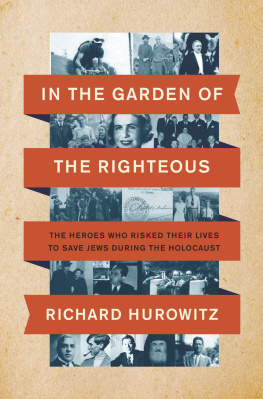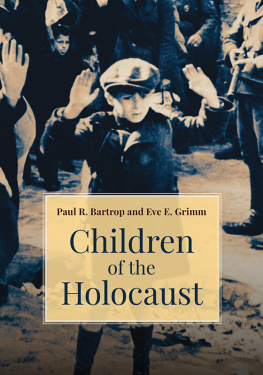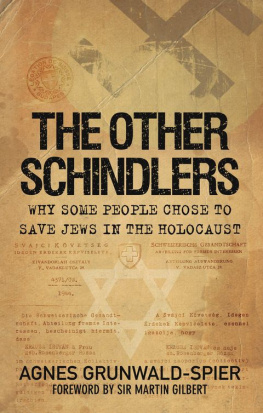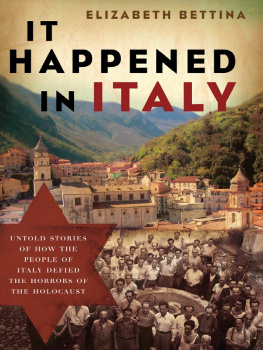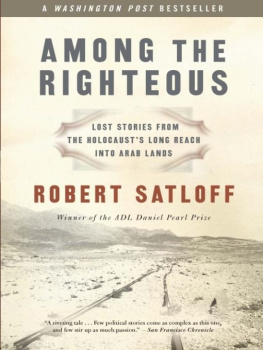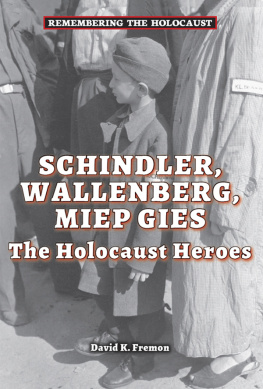Richard Hurowitz - In the Garden of the Righteous: The Heroes Who Risked Their Lives to Save Jews During the Holocaust
Here you can read online Richard Hurowitz - In the Garden of the Righteous: The Heroes Who Risked Their Lives to Save Jews During the Holocaust full text of the book (entire story) in english for free. Download pdf and epub, get meaning, cover and reviews about this ebook. year: 2023, publisher: HarperCollins, genre: Detective and thriller. Description of the work, (preface) as well as reviews are available. Best literature library LitArk.com created for fans of good reading and offers a wide selection of genres:
Romance novel
Science fiction
Adventure
Detective
Science
History
Home and family
Prose
Art
Politics
Computer
Non-fiction
Religion
Business
Children
Humor
Choose a favorite category and find really read worthwhile books. Enjoy immersion in the world of imagination, feel the emotions of the characters or learn something new for yourself, make an fascinating discovery.
- Book:In the Garden of the Righteous: The Heroes Who Risked Their Lives to Save Jews During the Holocaust
- Author:
- Publisher:HarperCollins
- Genre:
- Year:2023
- Rating:5 / 5
- Favourites:Add to favourites
- Your mark:
In the Garden of the Righteous: The Heroes Who Risked Their Lives to Save Jews During the Holocaust: summary, description and annotation
We offer to read an annotation, description, summary or preface (depends on what the author of the book "In the Garden of the Righteous: The Heroes Who Risked Their Lives to Save Jews During the Holocaust" wrote himself). If you haven't found the necessary information about the book — write in the comments, we will try to find it.
In the Garden of the Righteous brilliantly describes how in the midst of the brutality of the Holocaust and the collaboration, acquiescence and passivity of millions, there were people who risked their lives to save others out of a sense of shared humanity. This book is more timely than ever.Stuart E. Eizenstat, author of Imperfect Justice: Looted Assets, Slave Labor, and the Unfinished Business of World War II
These powerfully illuminating and inspiring profiles pay tribute to the incredible deeds of the Righteous Among the Nations, little-known heroes who saved countless lives during the Holocaust.
Less than a century ago, the Second World War took the lives of more than fifty million people; more than six million of them were systematically exterminated through crimes of such enormity that a new name to describe the horror was coined: the Holocaust. Yet amid such darkness, there were glimmers of lightcourageous individuals who risked everything to save those hunted by the Nazis. Today, as bigotry and intolerance and the threats of fascism and authoritarianism are ascendent once again, these heroes little-known storiesamong the most remarkable in human historyresonate powerfully. Yad Vashem, the Holocaust Memorial in Jerusalem, has recognized more than 27,000 individuals as Righteous Among the Nationsnon-Jewish people such as Raoul Wallenberg and Oskar Schindler who risked their lives to save their persecuted neighbors.
In the Garden of the Righteous chronicles extraordinary acts at a time when the moral choices were stark, the threat immense, and the passive apathy of millions predominated. Deeply researched and astonishingly moving, it focuses on ten remarkable stories, including that of the circus ringmaster Adolf Althoff and his wife Maria, the Portuguese diplomat Aristides de Sousa Mendes, the Italian cycling champion Gino Bartali, the Polish social worker Irena Sendler, and the Japanese spy Chinue Sugihara, who provided hiding places, participated in underground networks, refused to betray their neighbors, and secured safe passage. They repeatedly defied authorities and risked their lives, their livelihoods, and their families to save the helpless and the persecuted. In the Garden of the Righteous is a testament to their kindness and courage.
Richard Hurowitz: author's other books
Who wrote In the Garden of the Righteous: The Heroes Who Risked Their Lives to Save Jews During the Holocaust? Find out the surname, the name of the author of the book and a list of all author's works by series.

